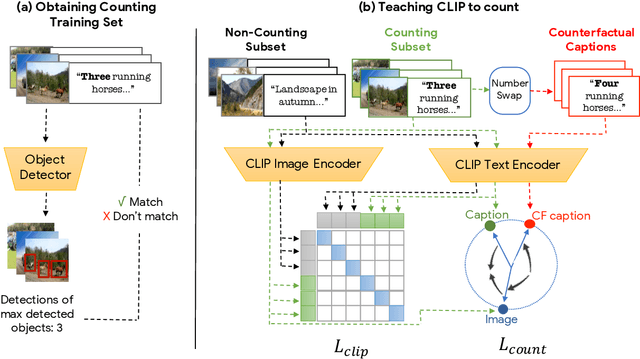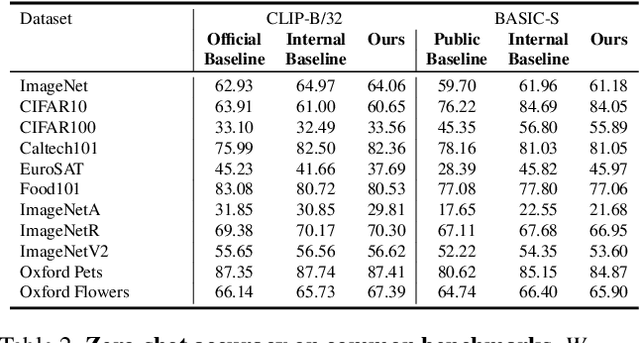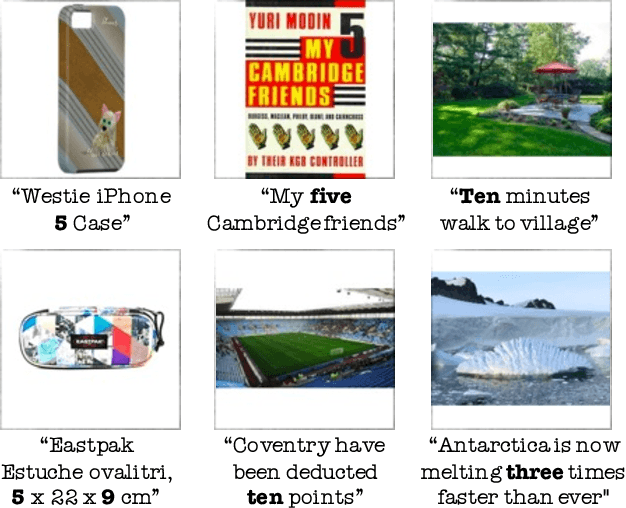Teaching CLIP to Count to Ten
Paper and Code
Feb 23, 2023



Large vision-language models (VLMs), such as CLIP, learn rich joint image-text representations, facilitating advances in numerous downstream tasks, including zero-shot classification and text-to-image generation. Nevertheless, existing VLMs exhibit a prominent well-documented limitation - they fail to encapsulate compositional concepts such as counting. We introduce a simple yet effective method to improve the quantitative understanding of VLMs, while maintaining their overall performance on common benchmarks. Specifically, we propose a new counting-contrastive loss used to finetune a pre-trained VLM in tandem with its original objective. Our counting loss is deployed over automatically-created counterfactual examples, each consisting of an image and a caption containing an incorrect object count. For example, an image depicting three dogs is paired with the caption "Six dogs playing in the yard". Our loss encourages discrimination between the correct caption and its counterfactual variant which serves as a hard negative example. To the best of our knowledge, this work is the first to extend CLIP's capabilities to object counting. Furthermore, we introduce "CountBench" - a new image-text counting benchmark for evaluating a model's understanding of object counting. We demonstrate a significant improvement over state-of-the-art baseline models on this task. Finally, we leverage our count-aware CLIP model for image retrieval and text-conditioned image generation, demonstrating that our model can produce specific counts of objects more reliably than existing ones.
 Add to Chrome
Add to Chrome Add to Firefox
Add to Firefox Add to Edge
Add to Edge